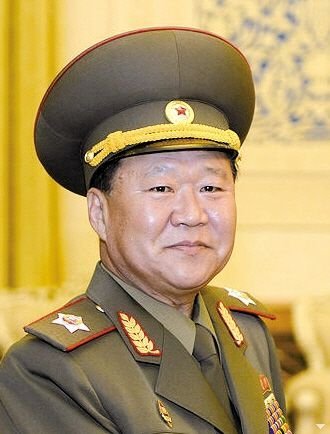Sanctions caused power shift among NK’s elites: scholar
Another purge of elites may follow PyeongChang Olympics
By Yeo Jun-sukPublished : Feb. 8, 2018 - 21:24
International sanctions on North Korea have brought changes to the power structure among the country’s governing elite, prompting the reclusive regime to offer an olive branch to South Korea and participate in the PyeongChang Winter Olympics, a Seoul-based scholar said.
During a closed seminar organized by the Hankuk University of Foreign Studies and Keio University, he noted there was growing anxiety among North Korean elites about securing foreign currency to consolidate Kim Jong-un’s power amid enhanced sanctions that followed a series of nuclear and missile tests last year.
This conundrum has put North Korea’s Choe Ryong-hae at the center of the reclusive regime’s power structure and his influence has been growing since being appointed as the director of Organization and Guidance Department at the North’s governing Workers’ Party of Korea in October.
During a closed seminar organized by the Hankuk University of Foreign Studies and Keio University, he noted there was growing anxiety among North Korean elites about securing foreign currency to consolidate Kim Jong-un’s power amid enhanced sanctions that followed a series of nuclear and missile tests last year.
This conundrum has put North Korea’s Choe Ryong-hae at the center of the reclusive regime’s power structure and his influence has been growing since being appointed as the director of Organization and Guidance Department at the North’s governing Workers’ Party of Korea in October.

“Choe’s mission is to find a way to ease sanctions, secure money for Kim Jong-un and help achieve the goal of building strong nuclear power,” said the scholar from a Seoul-based government research institute, who requested anonymity as he is not authorized to talk publicly to the media.
But achieving these goals is “extremely difficult,” he suggested, because the enhanced international sanctions have made it hard for North Korea to secure the money needed for conducting more tests to perfect its missile and nuclear technologies.
Such a daunting challenge for Choe might leave him with the same fate as Vice Marshal Hwang Pyong-so -- who was once considered the second most powerful official after Kim, but eventually purged by the young dictator, the scholar said.
Since taking power in 2012, Kim has purged a number of elites considered insufficiently loyal to him. Hwang was once one of Kim’s most-trusted advisers, but has reportedly faced unspecified punishment.
“Choe knows exactly what would happen to him and I don’t think he wants to go down in history as another Hwang,” the scholar said. “There could be another purge of North Korea’s elites after the PyeongChang Olympics ends.”
Organized by Keio University Center for Contemporary Korean Studies and founded by Hankuk University of Foreign Studies’ Global Security and Cooperation Center, the seminar involved security experts from South Korea, Japan and China.
Among them were Junya Nishino and Yuichi Hosoya from Keio University, Han Xian Dong of China University of Political Science and Law and Hwang Jae- ho, director of Hankuk University of Foreign Studies’ Global Security and Cooperation Center.
By Yeo Jun-suk (jasonyeo@heraldcorp.com)







![[KH Explains] Hyundai's full hybrid edge to pay off amid slow transition to pure EVs](http://res.heraldm.com/phpwas/restmb_idxmake.php?idx=644&simg=/content/image/2024/04/18/20240418050645_0.jpg&u=20240419100350)






![[From the Scene] Monks, Buddhists hail return of remains of Buddhas](http://res.heraldm.com/phpwas/restmb_idxmake.php?idx=652&simg=/content/image/2024/04/19/20240419050617_0.jpg&u=20240419175937)

![[KH Explains] Hyundai's full hybrid edge to pay off amid slow transition to pure EVs](http://res.heraldm.com/phpwas/restmb_idxmake.php?idx=652&simg=/content/image/2024/04/18/20240418050645_0.jpg&u=20240419100350)

![[Today’s K-pop] Illit drops debut single remix](http://res.heraldm.com/phpwas/restmb_idxmake.php?idx=642&simg=/content/image/2024/04/19/20240419050612_0.jpg&u=)